Preparing lesson plans and getting comfortable teaching English to a classroom of Thai students is challenging enough. Add on top of that the stress of banking, cell phones, navigating cultural differences and understanding a foreign language, and living abroad can be pretty uncomfortable and challenging at times.
That’s why it’s so important to have a support network to help you get through that challenging transition. Paang is our in-country coordinator for the Teach English in Thailand program. With over 6 years experience in the industry, she’s an awesome resource for our new teachers as they learn to navigate a foreign culture and settle into their life and job in a new country.
We reached out to Paang to get insight on how she found herself in the industry, why she is passionate about helping new English teachers and some tips on how to make the most of life in Thailand.
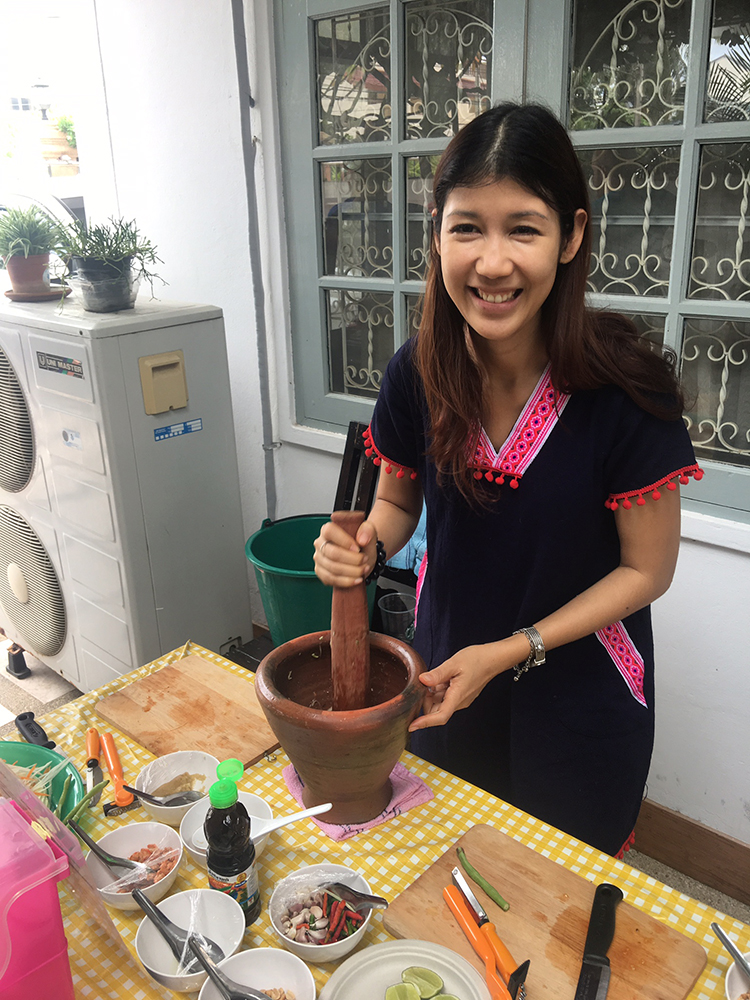
Tell us a little about yourself and how you started working with foreign English teachers in Thailand.
My name is Panintorn Prakij but my nickname is Paang. I have been helping foreign English teachers find good teaching positions in Thailand since 2011. In 2010, a friend of ours introduced us to the industry.
At the time, I was working in a staffing agency in Thailand placing westerners in offshore projects in Southeast Asia. Michael (the Managing Director of our organization) and his friend asked me to join and help foreign English teachers secure teaching jobs and assist these teachers in adjusting to their new working environment in Thailand.
What’s your favorite thing about working with new English teachers?
My favorite part of the job is helping young people accomplish their goals and build extraordinary life skills through cross-cultural experiences. I love what I do because I know how much impact our native English speaking teachers have on the lives of Thai children through teaching English and interacting with, and inspiring, young people.
Our teachers not only bring the English language, they also bring their stories, their backgrounds and experiences, which act as a doorway through which Thai children can experience other cultures. Teachers hold important roles in Thailand. Being a part of helping teachers to help Thai children definitely makes my job meaningful.
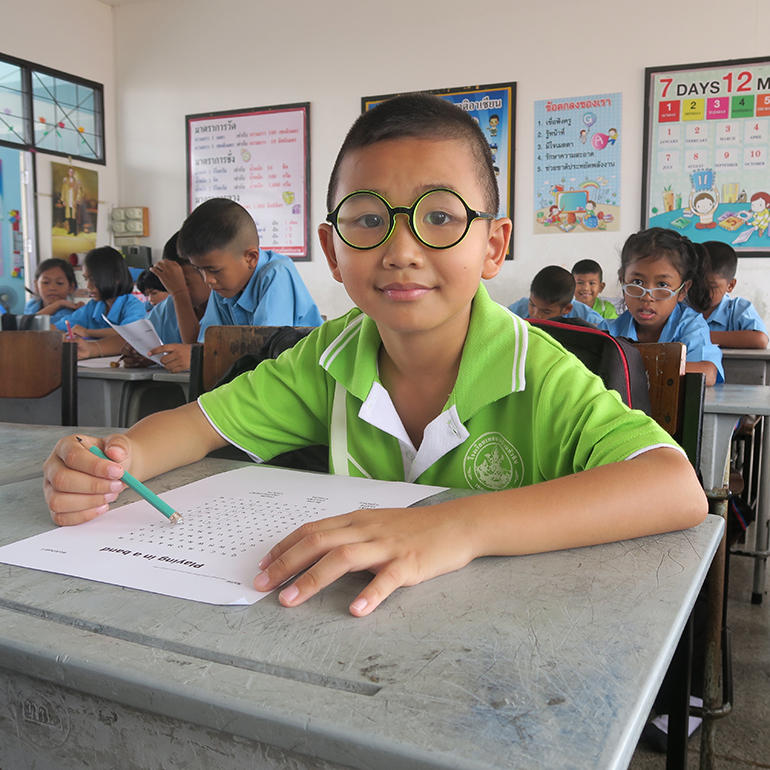
Why do you think it’s important to have someone in the country to welcome native English teachers in Thailand?
It is important to have someone to welcome and to assist you in a country like Thailand, because it is totally different from where our teachers are from. There are so many differences: culture, language, values, the way people live their lives, and even just simple things, such as how to set up the cellphone or what to do when you get sick, or how to open a bank account, etc. There are a lot of things that teachers will learn and discover.
Having someone or an organization to assist and guide in making the transition to Thai culture to avoid mistakes and causing hassles provides teachers with greater peace of mind and much less stress. Teachers also meet other, like-minded participants who are coming on the program, which makes them feel less stressed and gives them a wide support network.
Do you think foreign teachers have an easy or difficult time adjusting to life in Thailand? Why?
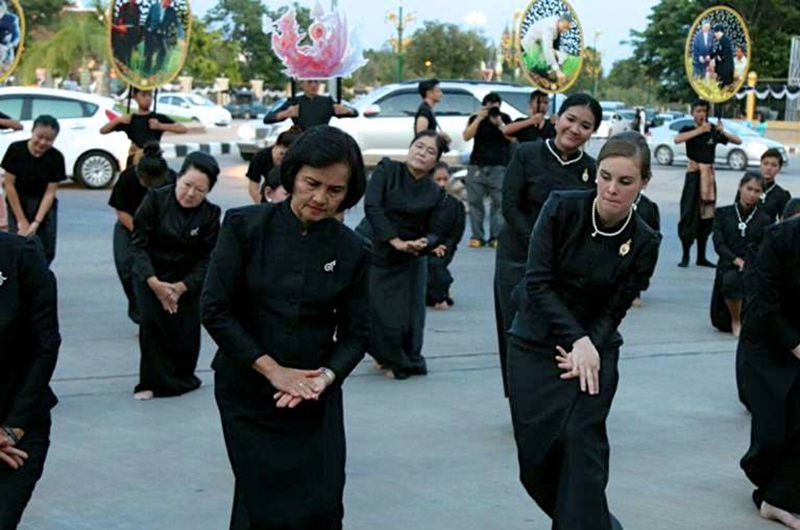
I think foreigners generally need a bit of time to adjust to life in Thailand. As mentioned, the cultural differences and the way people live their lives are not the same as in western countries. Even with the beauty of Thailand’s sceneries and the generosity of the people, there are still some difficulties adjusting to life in Thailand. Many teachers find this adjustment particularly challenging at the beginning. But that is why this kind of experience is so unique and more special than to just pure travel.
This program turns our foreign teachers into different people: More mature and experienced, more empathetic, better able to step outside of their own shoes, and more generous and supportive of local communities in need. Many return home with strong Thai language skills, and if they are lucky they will bring a bit of Thai culture home with them. Maybe even bring a rescue dog home from our local rescue organization Rescue Paws. Some never return to their home countries, deciding to call Thailand their home!
What advice would you give to people considering moving to Thailand to teach?

Bring your enthusiasm to learn about the culture but leave your expectations at home. Bring an open mind. This will help you immerse yourself, and get much more out of the experience. Read-up about Thai culture and values (and even Thai language) before you even get here so that you have a bit of an understanding. During the cultural orientation, we will have a more in depth presentation and lecture on Thai culture and language, and with that foundation prior to departure, you will be able to ask great questions and get more out of the orientation.
In terms of preparation, follow our suggested packing list ☺
We provide the list of things you should bring from first-hand experience of our staff who came through this program and they add things that they brought and they wish they brought too:). It is important to stress that when it comes to packing, bring plenty of professional clothing as Thai schools are quite conservative about dress code.
What are your favorite places to visit in Thailand?

There are too many favorite places I love to visit to list in a single interview☺ but I will choose one place for each region. In the eastern region, I like Koh Krood, one of the islands in Trad province, where you get to enjoy beaches vibes, nature and waterfalls without feeling so crowded. Most foreign visitors don’t know about this place.
In the central region, I like Nakorn Nayok, which is only 1-2 hours away from Bangkok. There are waterfalls, mountains and a national park that you can enjoy even if you only have a few days off from school.
In the west, Kanchanaburi is my favorite place. Not only because it is my father’s hometown, but also because there is plenty of natural beauty and historical sites. From the famous River Kwae, and Erawan waterfall, to the Death Railway (built by the Japanese during WW2 with forced Asian and Western POWs and laborers), there is so much to experience. You can also do rafting on the River Kwae or if you like trekking, you can go to nearby Sangkhlaburi, which borders Myanmar.
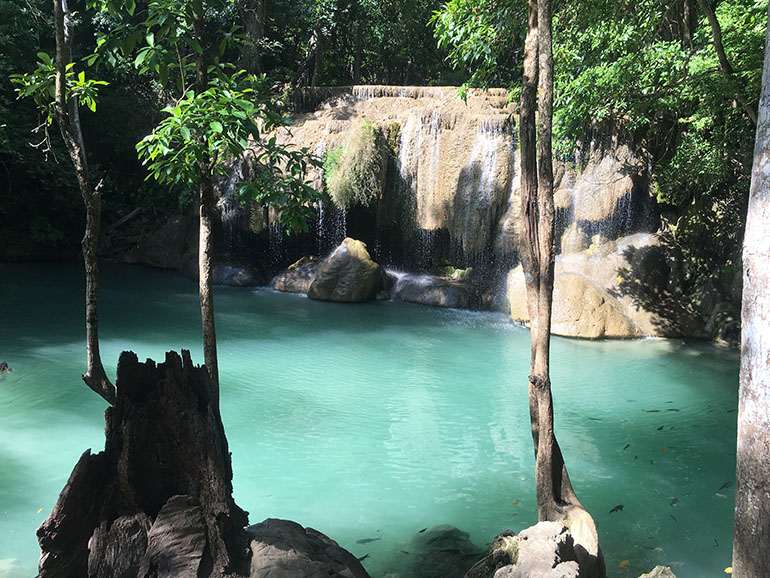
In Esan, my favorite place is Khon Kaen, which it is a nice city with charming vibes. Buriram province, home to the Phanom Roong palace, is also a must-see in this region.
In the south, there are a lot of favorite places but I would say Trang is at the top of my list. With beautiful islands nearby, and the unique combination of southern Thai and Chinese-Thai culture, Trang is an amazing place to visit.
In the north, I like Chiang Kham town in Phayao province a lot. It is a small town but very charming. It is a place unknown to tourists, but when you go there, you can feel the traditional northern Thai Lanna culture. It might not be as cool or hip as Pai (a Western tourist favorite) but the culture in small towns in the north like Chiang Kham, is much more authentic.
You have a lot of projects and things going on in Hua Hin, one of which is the new Café, Wagging Tales. Can you tell us about Wagging Tales and what the café is/does for Rescue Paws?
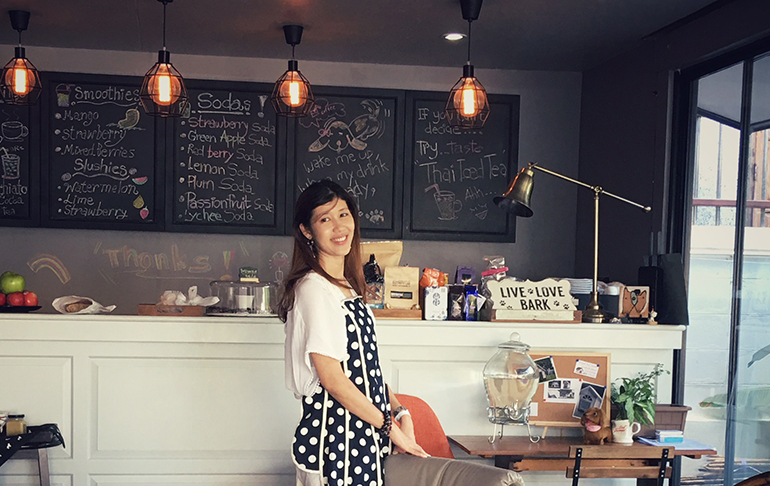
The reason behind opening this café is to raise money for Rescue Paws, our animal rescue project we founded to help dogs and cats and reduce the populations of stray animals in Thailand through sterilizations and public education.
The café has several goals. Besides earning money to support Rescue Paws, we are trying to create awareness of the stray dog problem in Thailand and also try to promote rescued dogs and cats to make people see how sweet and loving they are and eventually to discourage people from buying dogs from puppy mills, and adopt instead.
Anything else you’d like people to know about you, the program, or Thailand?
What people might not know about me is that like other Thai kids, I learned English since I was five years old, but I really only learned to speak English when I was 18. Early in my schooling, I learned English mostly with Thai teachers. When I was 18 years old, I had my first experience learning English with a native speaking teacher. What I found out from that experience was that the benefit wasn’t just learning from a native speaker, but being able to learn about the background, life, and culture of the teacher too. That inspired me to want to learn English more and learn more about other cultures.
As an English teacher in Thailand you don’t just teach a language, but you become a role model who can inspire those around you to learn and experience new things. The Teaching-in-Thailand program is the kind of experience in which you give back to the community and you get back something from your students and host communities. The kids learn the skills they need for a better future and you learn the life skills for a better you. That is what makes this such a special journey.
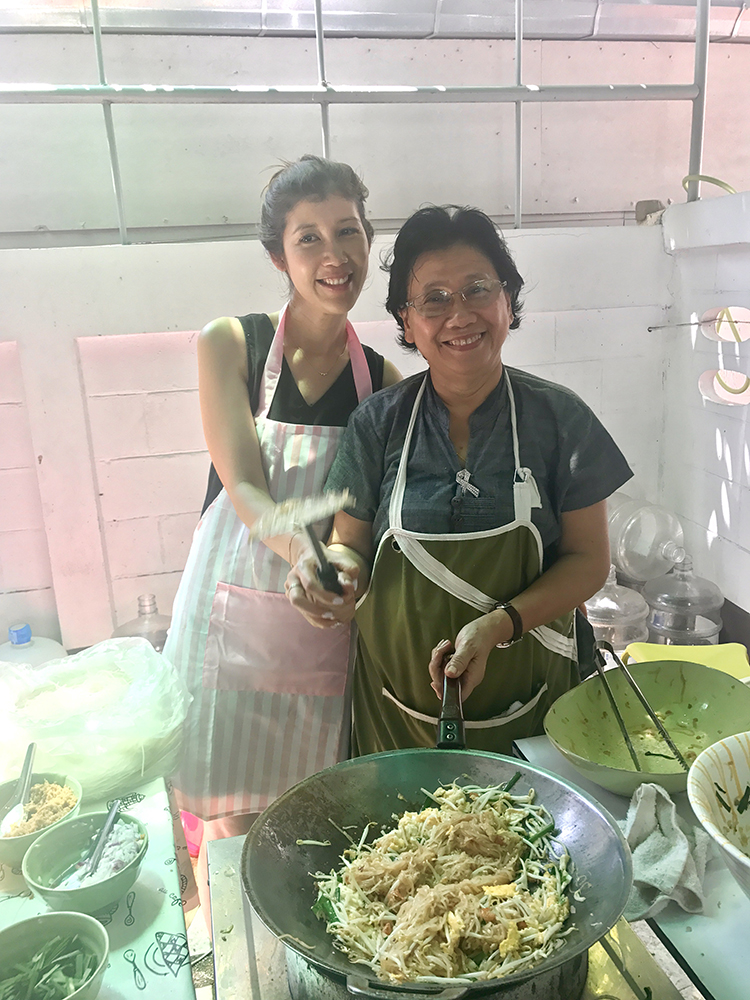
If you come here as a tourist you can experience the beaches, islands, temples, Thai food and boxing, but you will be missing out on so many benefits that come from becoming a part of the daily fabric of a Thai community. From this experience, you understand the feeling of being loved and looked up from the kids, who will cry when you leave. You will feel the warmth and learn the depths of Thai culture from being invited to attend a wedding even when you may only know that person for a week.
You will often have the opportunity to attend events, markets, festivals and even funerals with your Thai hosts, learning even more about the Thai culture and values. You will have a one-of-a-kind experience and take away so much that will stay with you forever, and forever change you for the better.
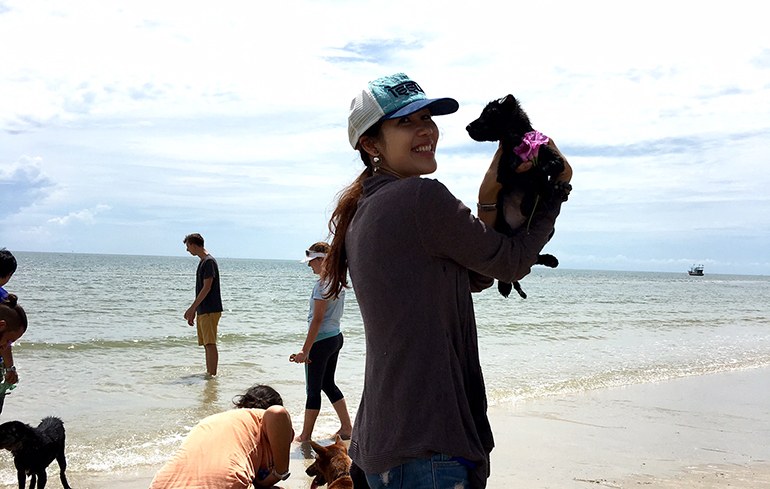
I enjoyed reading the article about teaching in Thailand. I have been living in the upper gulf of Thailand for three weeks and am amazed at the gentle ways of the people. I have needed to stop and ask for directions on mutlitple occasions and people will go out of there way to help you get to where you are going. Part of this experience is the challenge of understanding one another with limited words in Thai and them in English. Even with the language barrier they are persistent in their attempts to help you.
Thailand is a magical place!
Sa-Wat-Dii Kha Paang!
I very much enjoyed reading the blog and I am excited to meet you! :O)
We’re excited for you to arrive in Thailand soon, Kristen!
Thank you for sharing!! I enjoyed reading about you and all the advice you have to offer. I can’t wait to meet you and embark on this experience of a lifetime! 🙂
Paang is really, really great. So glad you two will get to meet each other.